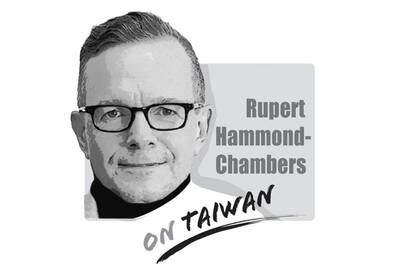In a bid to put Yushan on the world map and generate tourism, the Construction and Planning Administration called on Taiwanese recently to vote for Taiwan’s highest peak in an online contest organized by the New7Wonders Foundation to select the world’s new “seven natural wonders.”
Taiwanese responded to the call and thanks to their enthusiasm, Yushan currently tops the list in the “Mountains and Volcanoes” category.
One would think that such endeavors would help inspire a sense of pride in Taiwanese, if not increase hope that such a ranking would have a positive effect on tourism.
It is therefore disheartening to see that on the contest Web site, Yushan is referred to — quite incongruously, given that in such a contest geographical location is important — as “a central mountain range in Chinese Taipei.”
So much for Taiwan’s natural wonders. Or the country’s dignity. In one fell swoop, Taiwan has been removed from the world map and replaced by an appellation that has neither historical validity nor grounding in reality.
Even more irritating has been the government’s lassitude on the matter. The Construction and Planning Administration has been conspicuously silent, as have other branches of government. Not a single attempt appears to have been made to have the name rectified. Asked by reporters if government agencies would request a change on the Web site, government officials shrugged it off as a minor incident.
When a country’s officials are not adamant in their defense of its name, how can they be expected to uphold its visibility? If Yushan wins the contest, will people abroad wishing to visit it rush to buy tickets to China — or will they ask their travel agent which airline flies to that odd place called “Chinese Taipei”?
In international sports competitions, Taiwan has been bound by the Olympic formula, an agreement reached in 1981 between the International Olympic Committee and Taiwan in which it competes under the name “Chinese Taipei” at the Olympic Games.
But nowhere is it stipulated that Taiwan should be called “Chinese Taipei” in other international activities.
Many vividly remember President Ma Ying-jeou (馬英九), back when he was Taipei mayor, shooting Taiwan’s dignity down in flames by inventing his own demeaning “Taipei formula” that asked spectators not to display national flags at international sports events.
The passive response from officials in the Chinese Nationalist Party (KMT) government to the Yushan case suggests that this mentality is still very much alive, if not spreading.
In a final insult, Yushan National Park Administration director Chen Lung-sheng (陳隆陞) said last week that Taiwanese should also vote for the Yangtze river “to strive for the glory of both sides of the Taiwan Strait.”
Why that river? Why not encourage voters to pick the Ganges, or Venezuela’s Angel Falls? It is difficult to argue that there was no political meaning behind Chen’s remark.
It is upsetting enough that Taiwanese sports teams have to compete under the name “Chinese Taipei.” It’s even worse when government officials cannot be bothered to defend the country’s name in other, non-sports contexts, especially when there is no agreement binding them to abide by any other.
Having lived through former British prime minister Boris Johnson’s tumultuous and scandal-ridden administration, the last place I had expected to come face-to-face with “Mr Brexit” was in a hotel ballroom in Taipei. Should I have been so surprised? Over the past few years, Taiwan has unfortunately become the destination of choice for washed-up Western politicians to turn up long after their political careers have ended, making grandiose speeches in exchange for extraordinarily large paychecks far exceeding the annual salary of all but the wealthiest of Taiwan’s business tycoons. Taiwan’s pursuit of bygone politicians with little to no influence in their home

In 2025, it is easy to believe that Taiwan has always played a central role in various assessments of global national interests. But that is a mistaken belief. Taiwan’s position in the world and the international support it presently enjoys are relatively new and remain highly vulnerable to challenges from China. In the early 2000s, the George W. Bush Administration had plans to elevate bilateral relations and to boost Taiwan’s defense. It designated Taiwan as a non-NATO ally, and in 2001 made available to Taiwan a significant package of arms to enhance the island’s defenses including the submarines it long sought.
US lobbyist Christian Whiton has published an update to his article, “How Taiwan Lost Trump,” discussed on the editorial page on Sunday. His new article, titled “What Taiwan Should Do” refers to the three articles published in the Taipei Times, saying that none had offered a solution to the problems he identified. That is fair. The articles pushed back on points Whiton made that were felt partisan, misdirected or uninformed; in this response, he offers solutions of his own. While many are on point and he would find no disagreement here, the nuances of the political and historical complexities in
Taiwan faces an image challenge even among its allies, as it must constantly counter falsehoods and misrepresentations spread by its more powerful neighbor, the People’s Republic of China (PRC). While Taiwan refrains from disparaging its troublesome neighbor to other countries, the PRC is working not only to forge a narrative about itself, its intentions and value to the international community, but is also spreading lies about Taiwan. Governments, parliamentary groups and civil societies worldwide are caught in this narrative tug-of-war, each responding in their own way. National governments have the power to push back against what they know to be